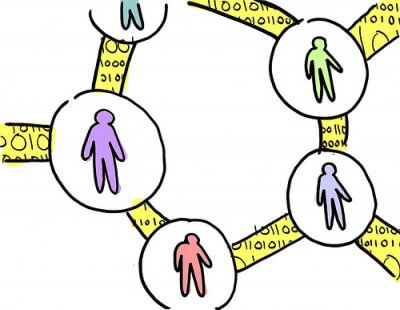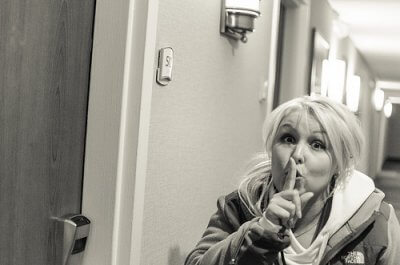Are These Communication Problems Ruining Your Relationships?

By: jonny goldstein
by Andrea M. Darcy
You have probably heard it said many times that communication is key in relationships. But what does it really mean?
How do you know what communication problem is causing you to struggle with partners, family, friends, and at work?
[Really need help? Visit our sister site harleytherapy.com to book online and phone counselling easily and quickly, worldwide.].
Communication Skills That Cause Relationship Problems
What unseen psychological issues might be driving your communication problems?
1. Not understanding how to listen.
Listening is not a skill that is well taught at school, and if your parents didn’t listen to you, you might have even been raised to not listen.
Listening is actually not about deciding what to say next, thinking of the best advice to give, or sharing your opinions and similar experiences. But nor is it blanking out and staying very quiet, thinking of other things and letting the person talk.
Then what is good listening? Read our article on “Advanced Listening Skills“.
2. Talking too much.

By: m01229
This can cause real difficulty at school or work.
People might assume you’re too talkative because you are confident or egotistical.
When actually talking too much can be a result of social anxiety. Your nervousness starts you talking, which makes you even more nervous, and then you can’t stop.
Talking a lot can also be a way for people with intimacy issues to hide themselves. Without realising it you will create a wall of words between you and others, where you talk about everything but the things that would reveal your true self and your real vulnerabilities.
3. Interrupting.
Sometimes always interrupting others is simply a case of poor listening skills. You are so busy planning what to say next that you don’t hear the other person and jump in.
But if you always interrupt before you can seem to stop yourself, and it frustrates you as much as it frustrates other people, and you sometimes feel like your mouth is several steps ahead of your mind? You might actually have adult ADHD.
Read our article ‘What is Adult ADHD?’ for more, or take our quiz, ‘Do You Have Adult ADHD?’.

By: Dimaz Fakhruddin
4. Never sharing how you feel.
This is a common one in romantic relationships, with one partner always complaining the other never shares how he/she feels.
The thing that goes unrecognised is that some of us don’t know how to talk about our feelings. In fact we don’t even know how to name what we feel in the first place.
It might be you are a man raised in a very patriarchal culture, meaning you were encouraged to not pay attention to or communicate feelings.
But more commonly, not knowing what you feel comes from being parented in ways that taught you to suppress your real emotions. This happens, for example, if you are only shown love when you are ‘good’ or ‘quiet’ but have love and attention withdrawn if you dare to be sad or angry.
A child get so used to suppressing a side of themselves they grow up into an adult who doesn’t even recognise his or her own feelings.
5. Not asking for what you need.
On the other end of the communication problem spectrum are those who share all their feelings but then don’t know how to ask for what they need.
Perhaps you expect others to just know what you need. But other people don’t read minds. And they see things from their perspective, not yours.
Not asking for what you need can be because of codependent behaviour, where you are so used to over-giving in order to maintain your sense of self you completely neglect your own needs. This can result in passive aggressive behaviour to get your needs met.
6. Closed body language.

By: Trevor Owens
If you are completely confused why people find you ‘shut off’ or ‘closed’ when you are well spoken, look at the way you hold yourself. Body language communicates strong signals.
If you have a tendency to cross your arms or hunch your shoulders, you might unwittingly be giving off the signal you want others to back off.
7. Being too direct.
Do people tell you that you lack social grace? Or you need to ‘soften’ what you say? It might be that you grew up with parents who were direct, and never developed the habit of sharing feedback gently.
It can help to learn about perspective. How might someone else see the world? And how might you better communicate taking this into account?
If this feels too hard, it could be that you are on the autistic spectrum. Some autistic individuals may communicate in a very straightforward way and find it challenging to interpret subtle emotional signals or implied meanings in conversation.
8. Saying things that always seem to confuse others.
Do you struggle to understand how other people think or why they do what they do? And do people constantly tell you that you act or think strangely?
There is a chance you have a personality disorder which means you see the world in a way that is different than others. Read our free Guide to Personality Disorders which goes through the various personality disorders and their symptoms.
What do I do if this is me?
Do you now recognise your communication problem is simply that you were not raised by parents or caregivers who taught you how to communicate? It can be as simple as setting the goal to learn and finding resources.
Is it possible your communication problems might be related to codependency? Or to a childhood where you were forced to suppress your feelings and thoughts in order to be accepted? Then your issue might be deep-rooted. Working with a counsellor or psychotherapist is recommended.
If you suspect that you might have autism, or a personality disorder, it is advisable to see a psychiatrist. They will very carefully look at your history and your signs and symptoms and then offer you a proper diagnosis if they feel it is warranted.
Harley Therapy connects you to therapists and adult ADHD psychiatrists in central London. And our new sister site harleytherapy.com provides affordable online counselling worldwide.
Still have a question about communication problems in relationships? Use our comment box below.
 Andrea M. Darcy is a lifestyle and wellbeing writer and mentor who often writes about relationships. Find her on @am_darcy
Andrea M. Darcy is a lifestyle and wellbeing writer and mentor who often writes about relationships. Find her on @am_darcy





Things have been going okay, but at the same time my anxiety has been off the charts. I tend to ignore my problems as it only makes me stressed, so I tell myself I’m okay. My boyfriend, on the other hand, seriously thinks there’s something wrong. He tells me I’ve been distant and defensive, as that’s how I usually get when emotionally unstable. The one occurrence this week where there was actually something bothering me, I had mentally decided he didn’t need to know, but he could tell something was bothering me. When asked to explain what was wrong, it felt like my voice had stopped working, and I kept closing and opening my mouth, wanting to talk, but not being able to. This has happened before, and it only frustrates us both.
Hi June, sounds like you are trying to control your mind, your emotions, your relationship…. the trouble is that it doesn’t tend to work, as you are seeing. Emotions and problems don’t ‘disappear’. Ignoring them means they just build up inside until one day we reach tipping point. And a good relationship can never work when you decide to hide things and control what can and can’t be said. We recommend you read our article on authentic relationships https://www.harleytherapy.co.uk/counselling/authentic-relationships.htm and our guide to healthy relationships http://bit.ly/HTrelationshipguide. As for that anxiety, why are you not seeking support for it? Anxiety is serious, but it responds well to talk therapy, particularly CBT.